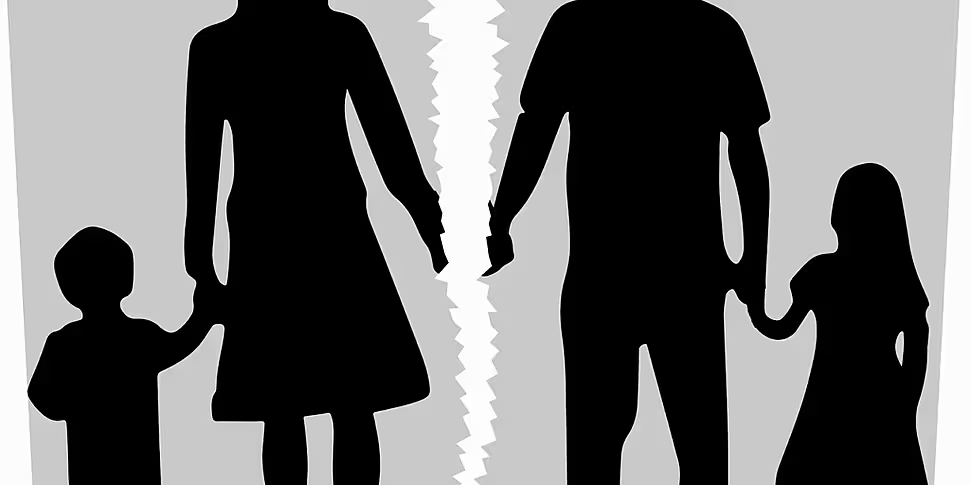On this week's 'Parenting' segment on the Moncrieff show, one listener sought advice about how to tell her children that she is separating from their father.
Joanna Fortune, psychotherapist specialising in Child & Adult Psychotherapy, joined Moncrieff to answer this and other listeners' questions.
The question:
"My partner and I are separating and need to break it to the kids, ages 9, 7 and 5.
"I am very anxious about this conversation as I know they have picked up on a lot of tension in the house for some time. My partner will also be moving out. I am finding it difficult to even process myself.
"And this is a lot of change very swiftly for the kids and I want to help them come to terms with this as best I can. My partner and I want to handle this delicately.
"How can I prepare them for this without leaving them distraught?"
Listen and subscribe to Moncrieff on Apple Podcasts, Google Podcasts or Spotify.
Joanna's reply:
“I think we can do it without leaving them distraught. Please don’t set yourself up to fail by saying, ‘We must do this without them getting upset.’ This is upsetting, this is a difficult experience and so it is okay for everybody involved to feel upset.
“And I’m really struck by what this parent is saying about how it’s a lot for them to come to terms with themselves because the end of a relationship is a really difficult choice regardless of the circumstances that have led up to that.
“And it’s a really difficult experience for the adults involved - nevermind the children.
“So you know, there’s a whole kind of piece here that I’m going to say about [giving] yourself adequate time to process the decision that you’ve come to around separating and then come together because I do hear - and I’m inferring - it seems like you are in this together -‘My partner and I want to handle this.’
“There is a collaborative feel which is great because if you can come together on a shared narrative and plan for how your children are going to be co-parented by you before you sit down with them, that’s immensely helpful.
“Because then you’re coming at them with confidence - as calm as you can be - and saying, ‘Yes this is difficult but look we have a plan and we’re on the same page with it.’
“And I think when you do this with your children - and bearing in mind their ages - emphasise that the grownups are still working out all of the details - so you might not have answers to all of their questions - but you will note their questions and come back as soon as you do have an answer.
“So really give yourself permission to not know everything because we can’t predict everything they’re going to ask. But whatever way you do this, you should always be honest but developmentally appropriate… with your children.
“Because children of this age - and a little bit younger as well - they’re still quite egocentric in their development. So the main question for them is, ‘How is this going to affect me and my life?’ And that’s a really healthy, normal, understandable question to ask and as parents you have to plan to address that before they ask it.
“Tell them, using very simple words, ‘We’ve made a difficult choice to end our marriage… and we won’t be living together anymore’ - you do want to get that in there as well... - ‘Our relationship changed and while we’re no longer in love with each other, we both really love you and always will. We’re still your parents, we’re always going to work together as parents for you. We feel we can do the best job we can as friends, rather than being in a relationship.’”
She continued:
“I think when you come at it in that structured way, you’re already pre-empting. ‘How is this going to affect me?’
“And then it’s about the practical stuff for kids, ‘Where will I live? Where will I sleep? Will I still go to school? Will I still go to the same football? What’s going to change and what’s not going to change?’
“So those are the practical things that you have to work out - where will be the children’s primary residence? What is the arrangement around custody access? All of those pieces that maybe you don’t have answers about right now and that’s what I mean about saying, ‘We know this much, it’s a difficult decision and there’s going to be other conversations as we work out more but that’s for us to work out.’
“I think if you can come at it on the same page that always makes a difficult situation easier and to do that while things are really positive between you.”
Main image: An image of a family.









